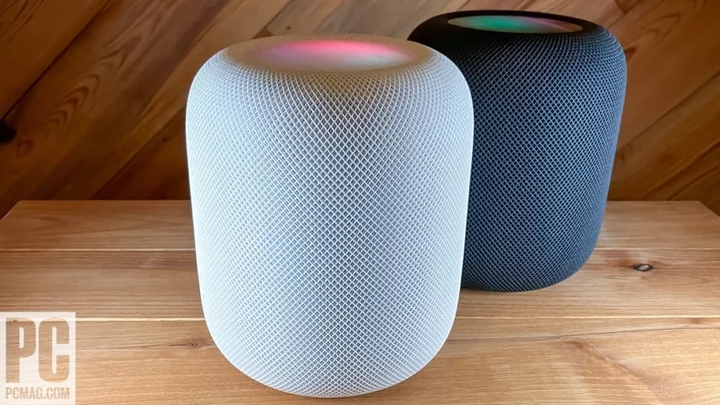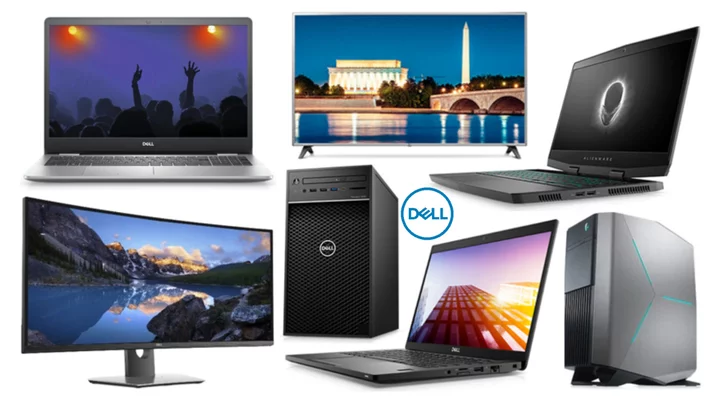Wireless speakers are everywhere these days. Big, small, portable, expensive, cheap, Bluetooth, Wi-Fi...the sheer amount of choice can seem overwhelming. But our top picks are sure to include at least one speaker that's right for you. Before anything else, though, you need to decide how you want to go wireless.
Most new speakers on the market feature some kind of wireless support, whether they're clip-on bike speakers or big soundbars. With some exceptions, any speaker you pick up at an electronics store should be able to stream audio over either Bluetooth or Wi-Fi. Your speaker might even be able to handle both.
With that in mind, we've selected the best wireless speakers you can buy now. We also cover everything you need to know about the different types of wireless speakers, so you can determine which one is right for you.
Bluetooth or Wi-Fi Speaker: Which Is Better?
Bluetooth is the most common wireless music streaming standard, but it isn't the only one. Bluetooth works point-to-point: You pair a transmitter (your phone or computer) with a receiver (your speaker) to play music. It's direct, (mostly) easy to set up, and lets you stream fairly high-quality music because of recent technological advancements.
Bluetooth generally can't facilitate multi-room setups by itself, though you can configure some speakers in stereo pairs with the help of an app. Others can create a wireless mesh among multiple speakers for multi-room audio. The result isn't quite as high-fidelity or as powerful as Wi-Fi multi-room audio, however.
Wi-Fi audio includes standards like Apple AirPlay and Google Cast, along with various manufacturers' Wi-Fi streaming platforms. Wi-Fi can handle more bandwidth than Bluetooth, so it supports higher-fidelity audio. It can also integrate into your home network, so you can easily play audio from any device on your network without pairing anything.
The trade-off is that Wi-Fi music systems require a Wi-Fi network; you can't use them as a portable speaker with your smartphone like you can with Bluetooth models (though many offer Bluetooth pairing as a backup). The different Wi-Fi standards also mean various services might not be available to stream over a given speaker, though this is less of a problem than it has been in the past because of AirPlay, Google Cast, and Sonos' lengthy lists of supported third-party services.
Which Is the Best Multi-Room Audio System?
If you want sound throughout your home, you need more than one speaker. Instead of juggling Bluetooth pairing with each one or physically carrying a speaker from room to room, a multi-room sound system is the way to go. Fortunately, multi-room audio is more common and easier to use than ever. Multi-room audio is exactly what it sounds like: playing audio in multiple rooms. It means a system can manage multiple speakers at once, playing from one or more sound sources to one or more speakers at a given time.
Sonos speakers tap into the Sonos app to let you access any or all speakers connected to your home network and play music from dozens of different streaming sources as well as local storage.
Apple's AirPlay platform is the iOS- and macOS-friendly multi-room sound solution. There aren't any first-party AirPlay speakers besides the Apple HomePod and HomePod Mini, but many other Wi-Fi speakers, including Sonos products, support AirPlay. They let you easily stream from your iPhone or iPad at better quality than Bluetooth, but if you're an Android user, you won't find much utility in them.
Google Cast is Google's answer to AirPlay and works similarly. Google Home/Nest devices support Google Cast, as do many Wi-Fi speakers and soundbars. You can incorporate any Google Cast speaker into your Google Home setup and create room-based groupings in the same app as your Google Assistant speakers and smart home devices (if you use Google Home for that).
Amazon Echo speakers and the Alexa voice assistant didn't originally support multi-room audio, but now you can group and arrange most recent Alexa speakers like any other multi-room system. Like Chromecast, setting up multi-room Echo audio happens through the same app as your voice assistant and smart home devices, only it's all Alexa instead of Google.
Finally, a few Bluetooth speakers support linking, chaining, and mesh networks. These usually aren't as complex or robust as Wi-Fi multi-room systems, but they can be a worthy alternative to using your home network to stream music.
What Are the Different Types of Speakers?
Besides the type of wireless connection, you need to think about what style of speaker you want. Smaller, battery-powered speakers (usually Bluetooth) are useful because you can take them anywhere, but they don't get particularly loud. Larger speakers generally offer fuller sound and richer bass, but they are typically more expensive and less portable.
Besides single speakers, you can also find stereo pairs designed for desktop computers and home theater speaker systems like soundbars. These are obviously not portable at all, but if you want a centerpiece sound system for your living room or office they're likely your best choice.
Sony SRS-XG300 (Credit: Tim Gideon)Which Portable Speaker Sounds the Best?
For a speaker to be portable, it needs to be both small and light enough to easily carry around as well as run on a built-in battery. Of course, "small" and "light" are relative; tiny speakers with carabiners let you clip them to your backpack and take them on hikes, while much bigger and heavier models might be reasonable to only take from room to room in your home. Most Bluetooth speakers are portable, but that's not a rule by any means. Of course, larger speakers tend to sound better than smaller speakers, but they also aren't as easy to carry around.
Since Wi-Fi speakers rely on a separate network to enable multi-speaker and multi-room audio playback, they're rarely portable. After all, portability doesn't matter if you need an active connection to your home's hotspot. There are exceptions, though, and Wi-Fi speakers can still be portable if they have batteries, and ideally can create an ad-hoc Wi-Fi network with your phone.
Which Speaker Is Best for Outdoors?
Not all portable speakers are built to survive outdoors or the water in your pool. Rugged speakers can handle splashes, dunks, drops, and gunk. If you try that with others on this list, however, you will end up with an expensive brick. Look for speakers with IP ratings and guarantees of water and shock resistance if you want to carry them around to the beach, the lake, the slopes, or the trail. Our guide to IP ratings explains what those numbers mean, so you can determine whether your speaker can handle a dunk in the pool or only some light splashing.
For more, see our list of the best outdoor speakers.
What Is the Best Bluetooth Speaker for Sound Quality?
Unless portability is at the top of your priority list, sound quality is paramount. Plenty of speakers don't offer much in the way of features but produce top-notch audio. Big bass isn't for everyone, but unless your speaker is downright tiny, it should be able to reproduce low frequencies accurately without distortion at high volumes. Clarity is more important than sheer power, and a balanced, clean sound should be your goal. If you want a sound system that can drive a whole party instead of just fill a small room, keep the size of the speaker in mind; generally, the bigger a speaker is, the louder it can get while still sounding good.
Recent versions of Bluetooth (5.0 and up) can transmit high-quality audio, though Wi-Fi still holds an edge purely due to the available bandwidth. If you want to listen to lossless music on services like Tidal, you should probably go with the latter.
If you want to get the most out of your Bluetooth speaker, keep an eye on what Bluetooth codecs it supports. Our guide to Bluetooth codecs goes into more detail but, basically, SBC is the most common and lowest-quality codec for music. If you value audio quality, look for one that supports higher-quality codecs such as LDAC or AAC. We detail this information in each of our reviews.
Do You Need a Smart Speaker?
Voice assistants like Amazon Alexa, Apple Siri, and Google Assistant let you simply tell your speaker what to play. These voice assistants are useful for more than just playing music. You can ask them for weather forecasts, sports scores, unit conversions, and even language translations. They also generally support third-party skills that let you do anything from ordering pizza to playing trivia games. If you have other smart home devices, you might even be able to control them with your voice.
Left to right: Amazon Echo (4th Generation), Apple HomePod mini (Credit: Tim Gideon)Voice assistant speakers have one universal requirement: Wi-Fi. Without a consistent internet connection, voice recognition and all of the processing they require to find your music, answer your questions, and control your smart home devices simply won't work. These speakers can still be portable and even offer Bluetooth connectivity when you're away from your network, but those features aren't a guarantee. The most prominent first-party voice assistant speakers like the Amazon Echo and the Google Nest don't have batteries and are primarily meant for in-home use.
For more, see our picks for the best smart speakers.
Which Is the Best Bluetooth Speaker for the Price?
Tons of speakers are available for nearly every budget level. Don't assume, however, that the most money always buys the best overall product. Generally speaking, higher-end models do sound better, but sometimes they lack the features you might expect for the price. The trick is to get the best sound, along with the features you want, at a price you can afford. And, of course, if you want to know about all of those things, you can read our reviews of each speaker.
The easiest way to get the best price is to shop around online. You can often find prices well below the list price if you do a little bargain hunting. Don't be afraid to look for similar speakers to the ones on this list, either; a number of the options here have worthwhile predecessors that you can now find for much less. We've also rounded up our favorite Bluetooth speakers for under $100.
For more, see the latest speaker reviews in our speaker product guide. And if you want to cut the cord without waking the neighbors, check out our favorite wireless headphones.









